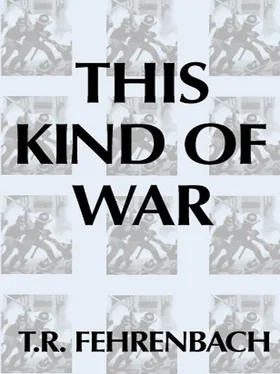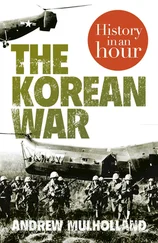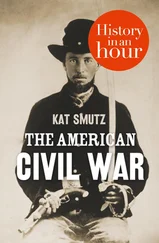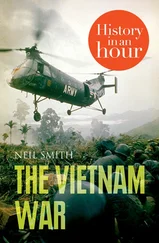The civilian liberal and the soldier, unfortunately, are eyeing different things: the civilian sociologists are concerned with men living together in peace and amiability and justice; the soldier's task is to teach them to suffer and fight, kill and die. Ironically, even in the twentieth century American society demands both of its citizenry.
Perhaps the values that comprise a decent civilization and those needed to defend it abroad will always be at odds. A complete triumph for either faction would probably result in disaster.
Perhaps, also, at the beginning a word must be said concerning discipline. "Discipline," like the terms "work" and "fatherland"—among the greatest of human values—has been given an almost repugnant connotation from its use by Fascist ideologies. But the term "discipline" as used in these pages does not refer to the mindless, robotlike obedience and self-abasement of a Prussian grenadier. Both American sociologists and soldiers agree that it means, basically, self-restraint—the self-restraint required not to break the sensible laws whether they be imposed against speeding or against removing an uncomfortably heavy steel helmet, the fear not to spend more money than one earns, not to drink from a canteen in combat before it is absolutely necessary, and to obey both parent and teacher and officer in certain situations, even when the orders are acutely unpleasant.
Only those who have never learned self-restraint fear reasonable discipline.
Americans fully understand the requirements of the football field or the baseball diamond. They discipline themselves and suffer by the thousands to prepare for these rigors. A coach or manager who is too permissive soon seeks a new job; his teams fail against those who are tougher and harder. Yet undoubtedly any American officer, in peacetime, who worked his men as hard, or ruled them as severely as a college football coach does, would be removed.
But the shocks of the battlefield are a hundred times those of the playing field, and the outcome infinitely more important to the nation.
The problem is to understand the battlefield as well as the game of football. The problem is to see not what is desirable, or nice, or politically feasible, but what is necessary.
T.R.F.
JULY 4, 1962
SAN ANTONIO,TEXAS
| Go to Table of Contents |
Part I
Beginning
1
Seoul Saturday Night
Who desires peace, should prepare for war … no one dare offend or insult a power of recognized superiority in action.
— From the Latin of Vegetius, MILITARY INSTITUTUIONS OF THE ROMANS
ON 8 JUNE 1950 newspapers of the city of P'yongyang, capital of Chosun Minjujui Inmun Kongwhakuk , the North Korean People's Republic, printed a manifesto of the Central Committee of the United Democratic Patriotic Front. The manifesto announced as a goal for the Central Committee, elections to be held throughout both North and South Korea, and the parliament so elected to sit in Seoul no later than 15 August, fifth anniversary of the liberation from Japan.
No mention was made of the Taehan Minkuk , the Republic of Korea, which south of the 38th parallel was United Nations-sponsored and American-backed, and of which Dr. Syngman Rhee was president.
The manifesto was picked up by Tass , Russian news service, and reprinted in Izvestia , 10 June 1950. By devious routes a copy of Izvestia came to the Library of Congress, untranslated from the Russian.
This manifesto made interesting reading. It was a storm signal. It seems a pity no one in the West bothered to read it.
But then, if it had been read, it would have been ignored. Storm signals had been flying for more than four years. In Asia, Nationalist China had fallen. There was Communist-directed war in Indo-China. World Communism, from its power base in Soviet Russia, undeterred by the nuclear bomb, continued its aggressive course, causing misgivings in the West, making its nations sign defensive alliances.
But the West did not prepare for trouble. It did not make ready, because its peoples, in their heart of hearts, did not want to be prepared.
It would not have mattered if anyone had read the P'yongyang Manifesto.
Senior Colonel Lee Hak Ku, thirty years old, was Operations Officer, II Corps, of the Inmun Gun , the North Korean People's Army, and all week he had been working very hard. Since 15 June 1950, every regular division of the Inmun Gun had moved from their normal billets and had been deployed along planned lines of departure just north of the 38th parallel. It had meant staff work, and lots of it.
Only now, as darkness fell on Saturday, 24 June, could Lee Hak Ku allow the hard lines of his square young face to relax, and to permit himself leisurely to enjoy a cigarette. In a people's republic Saturday night meant nothing, but every unit of the Inmun Gun had been in position since midnight 23 June, and for a few hours there was really nothing more to do.
And that was good staff work.
Standing relaxed in his somewhat shoddy Russian-style blue uniform with its flaring breeches and polished high boots, Senior Colonel Lee could review the turmoil and ferment of the last few days. Eighty thousand men had been moved, some divisions coming down from the high and distant Yalu, and it had all been done smoothly. Beyond doubt, the running dogs of the American imperialists, the South Koreans, suspected nothing.
The commander of the Inmun Gun, Chai Ung Jun, and his staff of veterans from the Manchurian wars, could take deep pride in their work. Since the meeting of high Soviet and Chinese Communist officials in Peiping in January to plan the invasion of the United Nations and American-backed Republic of Korea, the Inmun Gun had achieved prodigies for so small and so new an army.
There had been the dumps and depots to build near the parallel, to hold the mountains of arms and equipment shipped in by freighter from the Soviet Union. There had been the crews of the 105th Armored Brigade to train in the use of the Russian T-34, the main battle tank that had stopped panzer leader Guderian in front of Moscow, and young fliers to be accustomed to the intricacies of YAK fighters. And there had been the thousands of Korean-extraction veterans of the Chinese Communist Forces to reintegrate into the Inmun Gun. With Chiang Kai-shek defeated and his Nationalist remnants exiled to Taiwan, Red China could release her Korean-speaking soldiers; by June 1950, they made up 30 percent of the Inmun Gun.
On Friday, 23 June, shortly before midnight, 90,000 men stood ready in the misting rain. In addition to their 150 medium tanks and 200 aircraft, they had small arms and mortars in profusion, backed up by plentiful 122mm howitzers and 76mm self-propelled guns. They were seven infantry divisions, one armored brigade, a separate infantry regiment, a motorcycle regiment, and a brigade of the fanatical Bo An Dae, the Border Constabulary.
Beginning 18 June, Senior Colonel Lee Hak Ku and his brother officers had seen to it that their orders went out.
First, Reconnaissance Order 1, in the Russian language, had come down from Intelligence, directing that information concerning South Korean defensive positions along each division's projected route of attack be obtained and verified no later than 24 June.
The Inmun Gun had hundreds of spies across the parallel, many of them working directly for the American advisers to the South Korean Army. The mysterious officers in Intelligence, who wrote in Russian script, received what they asked for.
By 22 June the divisions issued their operations orders, in Korean. The 1st, 3rd, and 4th divisions attacked down the Uijongbu Corridor toward Seoul, armored elements leading. Other divisions attacked in the east. Common soldiers were to be told they were on maneuvers. Officers were to know it was war.
Читать дальше












